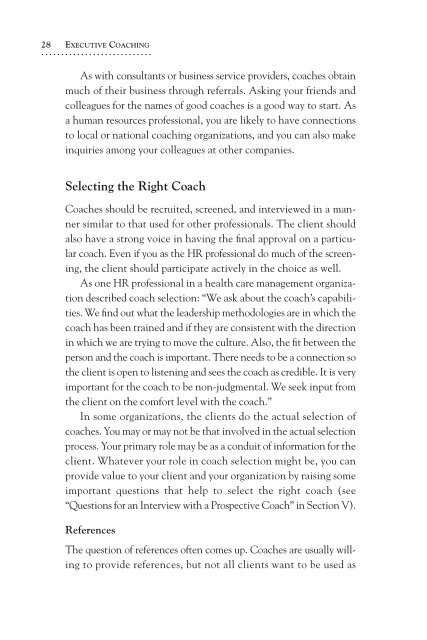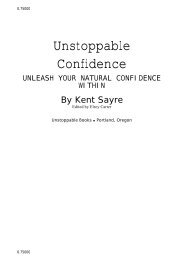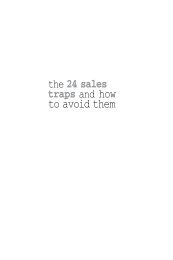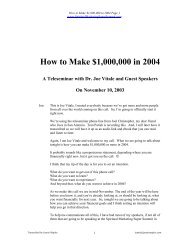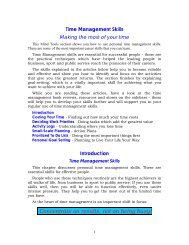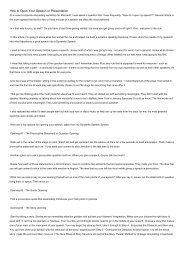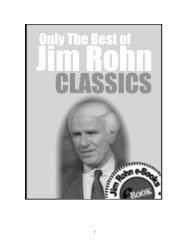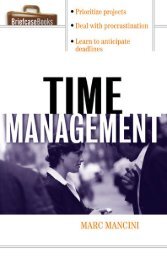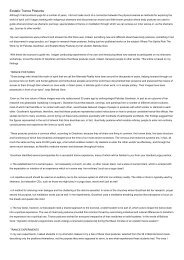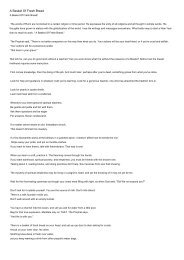Executive Coaching - A Guide For The HR Professional.pdf
Executive Coaching - A Guide For The HR Professional.pdf
Executive Coaching - A Guide For The HR Professional.pdf
Create successful ePaper yourself
Turn your PDF publications into a flip-book with our unique Google optimized e-Paper software.
28 EXECUTIVE COACHING<br />
............................<br />
As with consultants or business service providers, coaches obtain<br />
much of their business through referrals. Asking your friends and<br />
colleagues for the names of good coaches is a good way to start. As<br />
a human resources professional, you are likely to have connections<br />
to local or national coaching organizations, and you can also make<br />
inquiries among your colleagues at other companies.<br />
Selecting the Right Coach<br />
Coaches should be recruited, screened, and interviewed in a manner<br />
similar to that used for other professionals. <strong>The</strong> client should<br />
also have a strong voice in having the final approval on a particular<br />
coach. Even if you as the <strong>HR</strong> professional do much of the screening,<br />
the client should participate actively in the choice as well.<br />
As one <strong>HR</strong> professional in a health care management organization<br />
described coach selection: “We ask about the coach’s capabilities.<br />
We find out what the leadership methodologies are in which the<br />
coach has been trained and if they are consistent with the direction<br />
in which we are trying to move the culture. Also, the fit between the<br />
person and the coach is important. <strong>The</strong>re needs to be a connection so<br />
the client is open to listening and sees the coach as credible. It is very<br />
important for the coach to be non-judgmental. We seek input from<br />
the client on the comfort level with the coach.”<br />
In some organizations, the clients do the actual selection of<br />
coaches. You may or may not be that involved in the actual selection<br />
process. Your primary role may be as a conduit of information for the<br />
client. Whatever your role in coach selection might be, you can<br />
provide value to your client and your organization by raising some<br />
important questions that help to select the right coach (see<br />
“Questions for an Interview with a Prospective Coach” in Section V).<br />
References<br />
<strong>The</strong> question of references often comes up. Coaches are usually willing<br />
to provide references, but not all clients want to be used as


